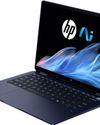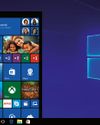Apple's big blues

In the late 1980s, Apple embarked on one of its most ambitious software projects: the creation of a nextgeneration operating system, codenamed Pink. Presented on a pink index card (hence the name), it was the brainchild of a small group of Apple engineers who believed the Mac needed memory protection to safeguard users' work in the event of a system crash. This innovation also helped to pave the way for an alliance with IBM that had the potential to revolutionise computing forever.
Around 1988, the Mac was experiencing a period of flux. Launched in January 1984, it had initially achieved success but most of the computer's original team members, including Steve Jobs, had dispersed and cracks were beginning to appear. While improvements had been made to the Mac line-up, such as the introduction of colour graphics in the Macintosh II in 1987, it became clear that a new operating system was necessary to replace Macintosh System Software sooner rather than later.
"The classic Mac OS was increasingly difficult to work with," said Mark Davis, who would become the manager and architect for the proposed operating system's international frameworks.
"The original Mac had such constraints of speed and size that the OS was written all by hand in assembly, and the structure was very difficult to maintain and extend." Initially, only five people worked on Pink - the so-called Gang of Five who had proposed it. Project leader Erich Ringewald was joined by David Goldsmith, Bayles Holt, Gene Pope and Gerard Schutten. This small team had also presented two additional sets of goals for consideration, each represented on a different coloured index card. Red proposed an operating system with far more advanced features such as speech recognition, while Blue concentrated on shortterm achievements that could be integrated into the Mac.
Denne historien er fra February 2025-utgaven av PC Pro.
Start din 7-dagers gratis prøveperiode på Magzter GOLD for å få tilgang til tusenvis av utvalgte premiumhistorier og 9000+ magasiner og aviser.
Allerede abonnent ? Logg på
Denne historien er fra February 2025-utgaven av PC Pro.
Start din 7-dagers gratis prøveperiode på Magzter GOLD for å få tilgang til tusenvis av utvalgte premiumhistorier og 9000+ magasiner og aviser.
Allerede abonnent? Logg på

Printers for PROS
We put 14 inkjet and laser printers through their paces in our exhaustive tests for quality and speed so that you can buy with confidence

Raspberry Pi 500
A brilliant update to the Pi 400, this \"all in one\" keyboard computer makes the most of the Raspberry Pi 5's power

Dell XPS 13 (Core Ultra 200V)
Intel's second-generation Core Ultra 200V chips prove an excellent fit for the ultra-compact XPS 13

AI agents: putting AI to work
This year is set to be all about Al agents. Nicole Kobie reveals what this means and whether the backlash is beginning before Al agents are even here

HP OmniBook Ultra Flip
A stylish 2-in-1 packed with the latest technology, and the local AI tool shows signs of promise, too

EMULATION MAKING WINDOWS ON ARM GREAT AGAIN
HOW DO THE LATEST LAPTOPS AND MACS RUN INTEL SOFTWARE ON THEIR ARM PROCESSORS? DARIEN GRAHAM-SMITH EXPLORES THE WONDERFUL WORLD OF EMULATION

DAVINCI RESOLVE
Edit and render videos like a pro. Nik Rawlinson shows you how to hit the ground running in the powerful free editing suite

WINDOWS in 2025
With the new year bringing the curtain down on the most used version of Windows, Barry Collins explores where consumers and businesses should head next

4 surprising things we learned from IBM Research
While AI and quantum computing were the two big themes at this year's IBM Research Europe media event, Tim Danton reveals there was also one surprise lurking in the lab
